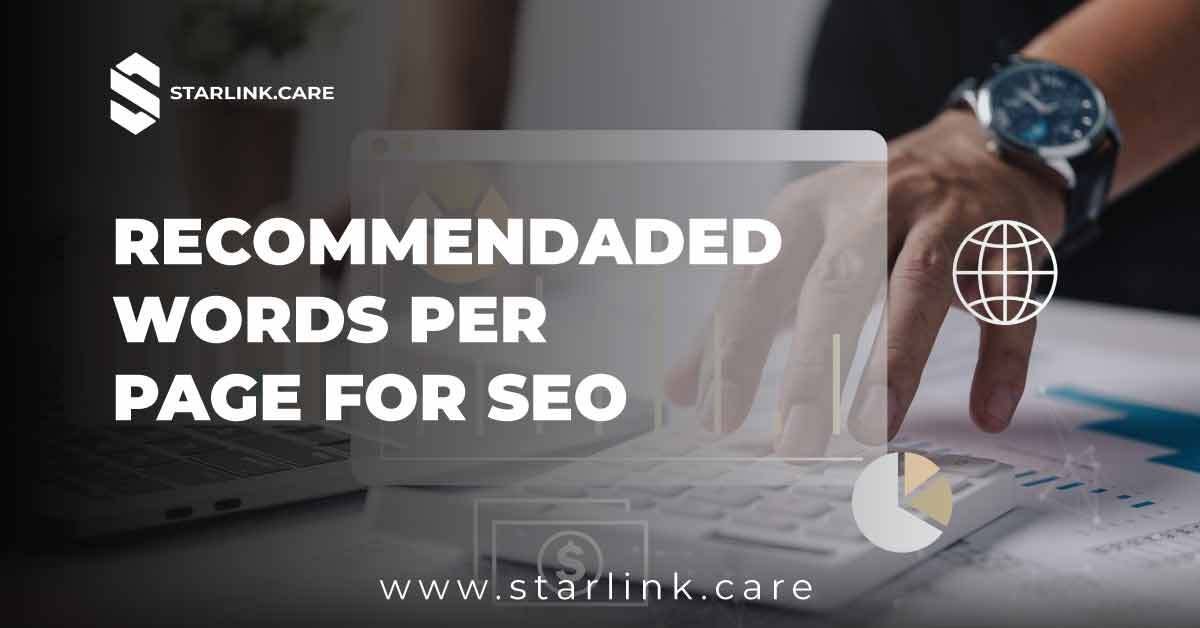Introduction
When it comes to Search Engine Optimization (SEO), many factors contribute to how well your website ranks on search engines like Google. One crucial aspect that often gets overlooked is the word count of your web pages. But how many words should you aim for on each page? This article will explore the Recommendaded Words Per Page For Seo, why it matters, and how to create content that not only ranks well but also engages your audience.
Why Word Count Matters for SEO
Before diving into the specifics of word count, let’s first understand why it matters. Search engines strive to deliver the best possible results to users, which means they favor content that is comprehensive and valuable. Pages with too little content may fail to provide sufficient information, which can negatively impact your rankings. On the other hand, pages that are too lengthy and not focused can lose the reader’s attention.
The Balance of Quality and Quantity
It’s essential to strike a balance between quality and quantity. A well-researched article with a higher word count can provide more value, but only if it maintains focus and relevance to the topic. Simply stuffing your content with words in an attempt to meet a certain word count is not a good practice. Search engines can penalize you for keyword stuffing, which could hurt your rankings instead of helping them.
What is the Ideal Word Count for SEO?
While there’s no one-size-fits-all answer, several studies suggest that longer content tends to perform better in search engine rankings. In general, the Recommendaded Words Per Page For Seo count for most web pages ranges between 1,000 to 2,500 words. Here’s a breakdown of different types of pages and their suggested word counts:
1. Blog Posts and Articles
For informative blog posts and articles, aim for 1,500 to 2,500 words. This length allows you to cover topics in-depth, providing valuable information that keeps readers engaged.
2. Landing Pages
For landing pages, the Recommendaded Words Per Page For Seo is around 500 to 1,000 words. These pages should be concise and focused on conversion, providing just enough information to entice visitors without overwhelming them.
3. Product Pages
For e-commerce sites, product pages can vary between 300 to 1,500 words. Provide essential details about the product, including features, specifications, and benefits, while also using relevant keywords to improve SEO.
4. Service Pages
If you offer services, Recommendaded Words Per Page For Seo is aimed at 1,000 to 2,000 words. These pages should explain your services clearly, outline their benefits, and provide case studies or testimonials to build credibility.
Anecdote: The Case of the Fitness Blog
Let’s consider the example of a fitness blog that was struggling to attract visitors. The owner noticed that their posts were around 600 words—too short to provide the in-depth information readers were looking for. After researching successful competitors, they decided to extend their articles to 1,500 words.
Over time, the blog began ranking higher in search results, leading to an increase in traffic and engagement. By providing comprehensive guides on topics like “How to Build Muscle” or “Healthy Meal Prep Ideas,” the blog not only attracted more visitors but also encouraged them to stay longer on the page.
Step-by-Step Guide: How to Determine Word Count for Your Pages
If you’re unsure how to approach word count for your own website, follow this step-by-step guide:
Step 1: Analyze Competitors
Start by analyzing your competitors. Use tools like SEMrush or Ahrefs to identify the average word count of the top-ranking pages for your target keywords. This will give you a benchmark to aim for.
Step 2: Define Your Goals
Determine the purpose of your page. Are you trying to inform, sell, or engage? Depending on your goals, you may need to adjust your word count. For example, informative articles might require more depth, while landing pages should be concise.
Step 3: Focus on Topic Coverage
Ensure that your content thoroughly covers the topic. Create an outline to help structure your article. Include all relevant points, and make sure to address potential questions readers may have.
Step 4: Optimize for Readability
While word count is important, readability is equally crucial. Use headings, subheadings, bullet points, and images to break up text and make it easier to digest. Tools like Grammarly and Hemingway Editor can help improve your writing style and clarity.
Step 5: Monitor Performance
After publishing your content, monitor its performance using tools like Google Analytics. Track metrics such as bounce rate, average time on page, and conversion rates to assess whether your word count is effective. Be prepared to make adjustments based on the data.
Common Misconceptions About Recommendaded Words Per Page For Seo
More Words Always Mean Better SEO
While longer content generally performs better, it’s essential to remember that quality matters more than quantity. If your content doesn’t provide value, even a lengthy article will not rank well.
Short Content Has No Value
Conversely, shorter content can still be valuable if it’s informative and relevant. It’s all about delivering the right message effectively.
SEO is All About Keywords
While keywords are critical for SEO, focusing solely on them can lead to poorly written content. Instead, prioritize providing valuable information and use keywords naturally within your content.
Conclusion: Finding the Right Word Count for Your Pages
In summary, the Recommendaded Words Per Page For Seo typically falls between 1,000 to 2,500 words, depending on the type of content you’re creating. Remember, the key is to balance quality and quantity while ensuring your content is engaging and informative.
As you craft your web pages, focus on delivering value to your readers, and let your word count follow suit. If you’re feeling overwhelmed by the process, consider hiring an SEO agency or a content marketing expert to help you create high-quality content that drives traffic and conversions.
By following these guidelines, you can create content that not only ranks well in search engines but also resonates with your audience, ultimately leading to greater success for your business.







